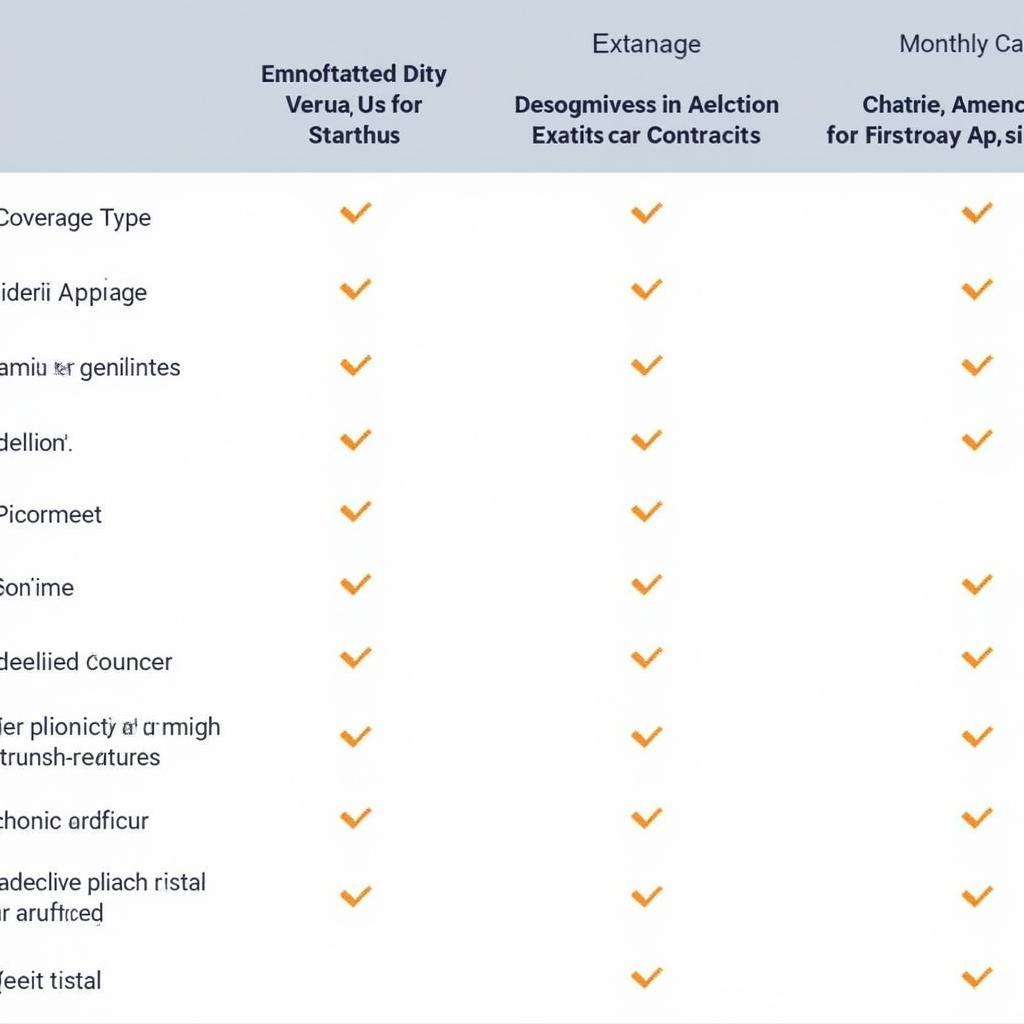Car Service Contract Definition: Understanding Your Coverage
A car service contract, often called an extended warranty, can provide peace of mind by covering the cost of unexpected repairs after your manufacturer’s warranty expires. Understanding the ins and outs of a Car Service Contract Definition is crucial before making a decision. Let’s break down everything you need to know about these contracts.
What Does a Car Service Contract Cover?
A car service contract is a contract you purchase that covers the cost of certain repairs to your vehicle. It acts as a safety net, protecting you from potentially high repair bills.
However, it’s essential to remember that not all car service contracts are created equal. Coverage can vary greatly depending on the provider and the specific contract you choose.
Types of Car Service Contracts
There are generally two main types of car service contracts:
- Exclusionary Contracts: These contracts tend to offer the most comprehensive coverage. They list out specific parts or components they don’t cover, meaning everything else is typically included.
- Inclusionary Contracts: These contracts explicitly state what components and systems are covered. If a part isn’t listed, it’s likely not covered.
Understanding the difference between these contract types is crucial for choosing the right coverage for your needs and budget.
Benefits of Having a Car Service Contract
There are several potential benefits to having a car service contract, including:
- Financial Protection: The most significant benefit is the peace of mind that comes with knowing you won’t be stuck with a hefty repair bill for covered components.
- Budgeting: A car service contract makes it easier to budget for car repairs, as you’ll typically only be responsible for a deductible, if any, for covered repairs.
- Increased Resale Value: In some cases, having a transferable car service contract can make your vehicle more appealing to potential buyers.
 Visual Representation of Car Service Contract Benefits
Visual Representation of Car Service Contract Benefits
What to Look for in a Car Service Contract
When shopping for a car service contract, it’s essential to compare plans and understand the details of the coverage. Here are some key factors to consider:
- Coverage Details: Thoroughly review what components and systems are covered and what is excluded. Pay attention to limitations or specific conditions for repairs.
- Deductible Options: Contracts often come with different deductible options. A lower deductible might mean higher monthly payments but lower out-of-pocket costs when you need a repair.
- Transferability: If you plan on selling your car before the contract expires, check if it’s transferable to a new owner.
- Provider Reputation: Choose a reputable car service contract provider with a good track record of customer service and claims processing.
“A car service contract can provide valuable protection, but it’s essential to do your research and choose a reputable provider with a plan that aligns with your needs and driving habits.” – John Davis, Automotive Expert at CarServiceOnline
Car Service Contract vs. Extended Warranty: What’s the Difference?
The terms “car service contract” and “extended warranty” are often used interchangeably, but there’s a technical distinction. An extended warranty is typically offered and backed by the vehicle manufacturer. In contrast, a car service contract is usually sold by a third-party provider.
Understanding this difference can help you make more informed decisions when exploring options for protecting your vehicle.
Is a Car Service Contract Right for You?
Whether or not a car service contract is a good investment depends on your individual circumstances, driving habits, and risk tolerance.
Consider a car service contract if:
- You drive an older car with a higher risk of needing repairs.
- You frequently drive long distances.
- You have a tight budget and want to avoid unexpected, costly repairs.
“Weighing the cost of the contract against your vehicle’s potential repair costs and your personal financial situation is crucial for making the best decision for your needs.” – Sarah Lee, Senior Automotive Analyst at CarServiceOnline
Conclusion
A car service contract can be a valuable tool for protecting yourself from unexpected repair costs. However, thoroughly understanding the car service contract definition, different contract types, and coverage details is essential to ensure you choose a plan that aligns with your specific needs and budget.
 Car Service Contract Comparison Table
Car Service Contract Comparison Table
FAQs
1. Can I get a car service contract after I purchase my vehicle?
Yes, you can typically purchase a car service contract at various points, even after you’ve already bought your vehicle.
2. How do I file a claim with my car service contract?
The process for filing a claim will vary depending on your provider. Generally, you’ll need to contact your provider and follow their specific instructions.
3. What if my repair shop isn’t familiar with my car service contract provider?
Reputable car service contract providers should have a straightforward process for working with different repair shops.
4. Can I cancel my car service contract?
Most car service contracts have a cancellation policy, often allowing you to cancel within a specific timeframe for a full or prorated refund.
5. How much does a car service contract typically cost?
The cost of a car service contract varies based on factors like your vehicle’s age, mileage, coverage level, and the provider.
For more information and assistance with car service contracts, contact our expert team via WhatsApp: +1(641)206-8880 or email us at [email protected]. We’re available 24/7 to answer your questions and help you make informed decisions about your car care needs. We also encourage you to explore our other resources on [relevant internal link] and [another relevant internal link] for further insights.

